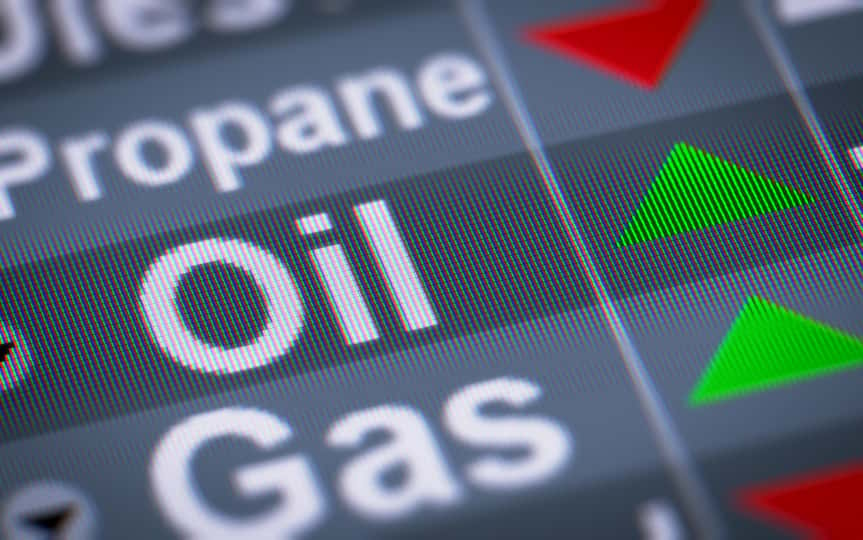Geopolitical tensions, including Houthi rebel disruptions in key shipping channels and potential escalation to the Straits of Hormuz, along with protests and closures in oil-producing regions, could drive oil prices significantly higher in the near future.
Therefore, considering the current geopolitical landscape, it could be prudent to add resilient energy stocks Baker Hughes Company (BKR - Get Rating), Sunoco LP (SUN - Get Rating), and Unit Corporation (UNTC - Get Rating) to your portfolio to capitalize on potential opportunities. Let us understand this in more detail.
The American oil industry is closely monitoring heightened tensions in the Middle East, anticipating potential disruptions to oil flow. In a significant naval encounter, British and U.S. navies intercepted a substantial barrage of drones and missiles launched by Yemen’s Houthi rebels in the Red Sea, safeguarding shipping routes.
The Iranian-backed Houthis launched an attack despite the imminent United Nations Security Council vote, aiming to condemn and demand an immediate cessation of their assaults potentially. The rebels assert that their actions target Israel’s offensive against Hamas in the Gaza Strip.
In response, oil prices surged as the United States cautioned Houthi militants against additional Red Sea attacks, and OPEC committed to maintaining unity in bolstering prices. Concurrently, protests in Libya led to the closure of the Sharara oil field, which is responsible for a daily output of 300,000 barrels.
According to the U.S. Energy Information Administration (EIA), escalating tensions in the crucial Red Sea shipping channel and other Middle East events have exerted upward pressure on prices since early December. If these tensions persist or intensify, there is potential for disruption in global oil trade flows and a further surge in global oil prices.
Moreover, Goldman Sachs (GS) has issued a warning that Houthi rebel disruptions extending to the Straits of Hormuz could potentially lead to a doubling of oil prices.
In addition, a month-long disruption in the Strait of Hormuz could lead to a 20% rise, potentially doubling if the disruption persists. Meanwhile, EIA anticipates that the average Brent crude oil price will be $82 per barrel in 2024 and $79 per barrel in 2025, closely aligning with the 2023 average of $82 per barrel.
Considering this outlook, let’s look at the fundamentals of the three energy stocks.
Baker Hughes Company (BKR - Get Rating)
BKR delivers advanced technologies and services across the energy and industrial value chain. Its segments include Oilfield Services & Equipment (OFSE) and Industrial & Energy Technology (IET). The company caters to diverse clients, ranging from upstream to downstream, onshore to offshore, and both small and large-scale enterprises.
On October 2, 2023, BKR reported that it had secured a contract for the supply of a modularized Liquefied Natural Gas (LNG) system and power island. The achievement stems from a master equipment supply agreement with Venture Global LNG, reflecting a commitment to delivering over 100 million tons of LNG production capacity per annum.
Beyond fortifying BKR’s technological prowess, the collaboration positions the company at the forefront of advancing the efficient utilization of natural gas, enabling substantial financial gains as it navigates the burgeoning demand for sustainable energy solutions.
On September 29, 2023, BKR unveiled that it received two awards from Vår Energi, marking a significant expansion of its footprint in the North Sea. The first contract underscores BKR’s amplified well-intervention capabilities. The second contract entails the delivery of a customized Balder field vertical tree system.
These endeavors would enhance BKR’s regional presence and underscore its prowess in providing advanced solutions for exploration logging, well-intervention technology, and subsea production systems.
For the fiscal 2023 third quarter that ended September 30, 2023, BKR’s revenue increased 23.7% year-over-year to $6.64 billion. Its adjusted EBITDA rose 29.7% from the year-ago value to $983 million. Also, adjusted net income attributable to BKR and adjusted EPS grew 61.7% and 61.5% from the prior year’s period to $427 million and $0.42, respectively.
Analysts expect BKR’s revenue to increase 20.9% year-over-year to $25.57 billion for the fiscal year that ended December 2023. The company’s EPS for the same year is estimated to grow 76.4% from the prior year to $1.59. Also, the company surpassed the consensus revenue and EPS estimates in three of four trailing quarters.
Shares of BKR have gained 3.5% over the past year to close the last trading session at $31.62.
BKR’s sound fundamentals are reflected in its POWR Ratings. The stock has an overall rating of B, equating to Buy in our proprietary rating system. The POWR Ratings are calculated by considering 118 different factors, each weighted to an optimal degree.
BKR has an A grade for Growth and a B for Momentum and Sentiment. It is ranked #11 out of 84 stocks within the Energy – Oil & Gas industry.
In addition to the POWR Ratings I’ve highlighted, you can see BKR’s Value, Stability, and Quality ratings here.
Sunoco LP (SUN - Get Rating)
SUN engages in the distribution and retail of motor fuels. Its Fuel Distribution and Marketing segment procures motor fuel from independent refiners and oil companies and provides it to independently operated dealers and distributors. The All Other segment encompasses partnership credit card services, franchise royalties, and retail operations.
In its December 2023 report, SUN underscored its strategic trajectory for 2024, emphasizing a focus on growth investments poised to augment both volume and market share.
In addition, anticipating a robust financial performance, SUN projects an adjusted EBITDA in the range of $975 million to $1 billion for fiscal 2024. The optimistic outlook is substantiated by SUN’s unwavering commitment to strong operational performance and execution, establishing a solid foundation for sustained success this year.
For the fiscal 2023 third quarter that ended September 30, 2023, SUN’s operating income increased 125.3% year-over-year to $338 million. Its net income and comprehensive income grew 227.7% from the year-ago value to $272 million. Additionally, net income per common unit rose 293.3% from the prior year’s period to $2.95.
As of September 30, 2023, SUN’s current assets amounted to $2.48 billion, compared to $1.98 billion as of December 31, 2022.
Analysts expect SUN’s EPS to increase 37.6% year-over-year to $6.44 for the fiscal year that ended December 2023. The stock has gained 8.6% over the past month and 34.4% over the past six months, closing the last trading session at $58.51.
SUN’s robust outlook is apparent in its POWR Ratings. The stock has an overall rating of B, which equates to Buy in our proprietary rating system.
SUN has an A grade for Growth. It is ranked 12 out of 26 stocks within the A-rated MLPs – Oil & Gas industry.
Click here to access additional SUN ratings for Value, Momentum, Stability, Sentiment and Quality.
Unit Corporation (UNTC - Get Rating)
UNTC explores, acquires, develops, and produces oil and natural gas in its Oil and Natural Gas segment. Its Contract Drilling segment drills onshore oil and gas wells. Moreover, the Mid-Stream segment buys, sells, gathers, processes, and treats natural gas for third parties.
On December 13, 2023, UNTC concluded the sale of specified non-core oil and gas assets in the Texas Panhandle to a third party, yielding net cash proceeds of $50 million at the closing. The Divested Assets, spanning around 51,000 net acres, signify a strategic move aligning with UNTC’s commitment to streamline its portfolio.
The transaction exemplifies UNTC’s adept execution of its asset management strategy and serves as a tangible demonstration of the company’s dedication to enhancing shareholder value through prudent and value-driven decision-making.
During the fiscal 2023 third quarter that ended September 30, 2023, UNTC’s revenues from the Contract Drilling segment increased 11.7% year-over-year to $44.95 million. Furthermore, it registered a net income and net income attributable to UNTC per common share of $28.84 million and $2.94, respectively, for the quarter.
As of September 30, 2023, the company’s cash and cash equivalents stood at $206.65 million. Moreover, its total assets amounted to $501.06 million, up from $469.26 million as of December 31, 2022.
Shares of UNTC have gained 24.4% over the past six months, closing the last trading session at $41.05.
UNTC’s solid prospects are reflected in its POWR Ratings. The stock has an overall rating of B, which translates to a Buy in our proprietary rating system.
UNTC has a B grade for Value and Quality. It is ranked #9 out of 84 stocks within the Energy – Oil & Gas industry.
Click here to access the additional UNTC ratings (Growth, Momentum, Stability, and Sentiment).
What To Do Next?
Get your hands on this special report with 3 low priced companies with tremendous upside potential even in today’s volatile markets:
3 Stocks to DOUBLE This Year >
Want More Great Investing Ideas?
BKR shares were trading at $31.06 per share on Wednesday afternoon, down $0.56 (-1.77%). Year-to-date, BKR has declined -9.13%, versus a -0.03% rise in the benchmark S&P 500 index during the same period.
About the Author: Aanchal Sugandh

Aanchal's passion for financial markets drives her work as an investment analyst and journalist. She earned her bachelor's degree in finance and is pursuing the CFA program. She is proficient at assessing the long-term prospects of stocks with her fundamental analysis skills. Her goal is to help investors build portfolios with sustainable returns. More...
More Resources for the Stocks in this Article
| Ticker | POWR Rating | Industry Rank | Rank in Industry |
| BKR | Get Rating | Get Rating | Get Rating |
| SUN | Get Rating | Get Rating | Get Rating |
| UNTC | Get Rating | Get Rating | Get Rating |






